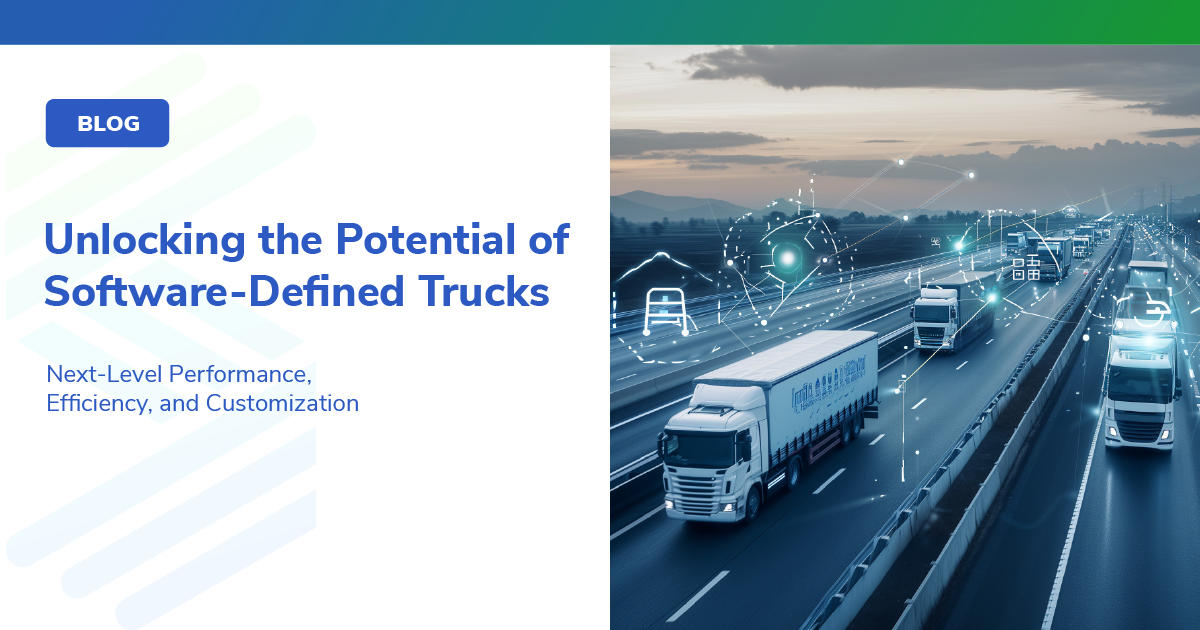

/
May 17, 2019
/
#
Min Read
ACT Expo 2019: IoV Is Shaping the Future of the Trucking Industry
In April 2019, I attended the Advanced Clean Transportation (ACT) Expo for the very first time.
ACT Expo is the most comprehensive event with 250+ exhibitors displaying advanced clean vehicles & technology to provide strong educational value for fleet owners and trucking industry stakeholders looking to make investments in alternative opportunities. I was specifically interested in checking out advancements in the trucking industry and how it would impact and influence fleet owners that are looking to reduce operating costs, and have better fleet management tools. With rising fuel costs, growing electric vehicle infrastructure, and increasing government incentives, fleet owners are starting to adopt clean transportation options in a big way.
Based on conversations with exhibitors who have been attending ACT Expo for a few years, it was clear that this event had been growing in popularity with this years turnout being the largest yet. Whether it was XOS’s (formerly Thor Trucks) class 8 ET-One, CityFreighter’s medium-duty Class 4 CF1, or Daimler’s eCascadia, connected electric trucks took center stage this year. Almost all the major players are developing IoT enabled vehicles, also known as Internet of Vehicles (IoV), which have a telematics gateway in their system architecture to be able to perform over-the-air (OTA) software updates and log CAN and ethernet vehicle data. This in turn will enable better fleet management tools, remote diagnostics and advanced fleet analytics.
While there is a desire to make IoVs, there is a lack of tools and platforms that can support the secure end-to-end management of software updates and fleet data collection. Based on my discussions with thought leaders in the space, I have captured the top reasons why OEMs don’t prefer to build in house:
- OEMs core strengths are in manufacturing, design and branding — They can focus on their core product development without getting distracted with the difficult task of creating big software, security and data analysis teams.
- Ability to use production grade solutions from day 1 — OEMs can reduce their engineering, development and testing costs by using the solutions directly on their production hardware that are available from the early days of a new vehicle design program.
- Reduction in capital expenditure — OEMs no longer need to buy and integrate expensive hardware logging tools that only work on the development fleet and offer limited functionality. Not only that, it decreases the number of mistakes and errors and improves engineering efficiency.
It will be very exciting to see some of these new, stylish, advanced electric and connected trucks on the road as well as see the impact of all the great work being done all over the world. ACT Expo is a great forum to witness the progress in the mobility world and I look forward to attending it again next year.
Co-Founder & Tech Lead, Sibros
—
Sibros is a fast-growing venture-backed team from Tesla and Google providing a set of tools to automotive and mobility companies to help them build revolutionary EVs and smarter transportation. Sibros does this by providing over-the-air update infrastructure, advanced data analytics, fleet management, and other key vehicle components.
Contact us for a free live demo of the platform working on your vehicle: info@sibros.tech
Follow us on Twitter, LinkedIn and Facebook!













